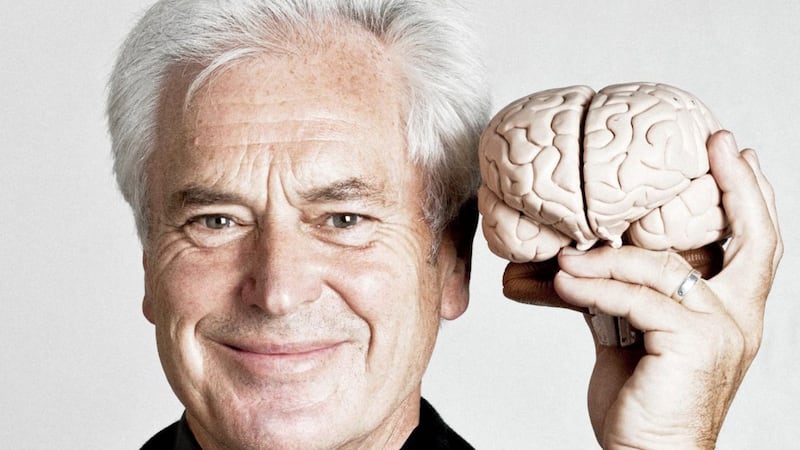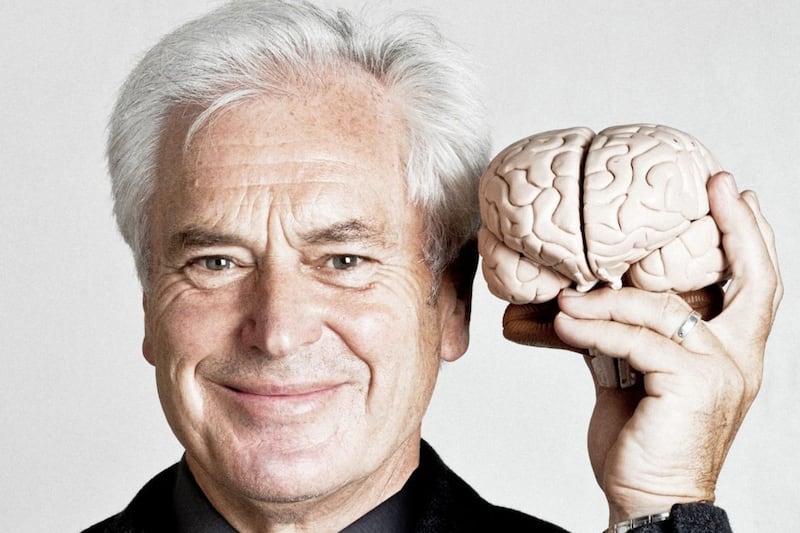WORK deadlines, exam pressure, credit card bills, relationship conflict, getting the kids homework done or even getting out in time in the morning – life is full of little stresses.
Then there are the big ones like family illness, redundancies or bereavement.
Stress affects everyone differently. Some people sink into depression when life has dealt them a poor hand, while for others who relish the opportunity of an interview or public speaking engagement, it merely increases their resilience.
So why do some people excel under stress, whilst others become debilitated?
Professor Ian Robertson is a clinical psychologist, neuroscientist and author of The Stress Test: How Pressure Can Make You Stronger and Sharper. He believes that everyone has the ability to turn pressure into positive energy and that the right level of stress can help people to flourish and achieve more than they ever thought possible.
Professor of Psychology at Trinity for almost 18 years, the Glasgow-born cognitive neuroscientist confesses to being an optimist who takes German philosopher Friedrich Nietzsche's quote "What doesn't kill you makes you stronger" as his motto in life.
“I recognised there were limits to the truth of that statement when I worked as a clinical psychologist. I saw some people who endured huge terrible stresses, particularly people stricken down at a young age with MS, Parkinson’s disease and strokes who responded heroically and I also saw people with relatively minor stresses collapsing under them.
"Then four years ago my best friend in Cambridge was on his bike when he was run over by a bus. He lost his right arm, had both his legs smashed and nearly died. People were very pessimistic about his chances of making a good recovery.
"I went over to his bedside as he woke up from having his arm amputated and I said to him 'what doesn't kill you makes you stronger'. He told me afterwards it was like a jolt of electricity through the brain. He's now cycling 80km and showing a remarkable exemplification.
"I'm not taking credit in the least for his remarkable resilience and capacity to respond to adversity. But it was his experience which made me write my book, The Stress Test.
Prof Robertson explains that the stress hormone cortisol is both a symptom of anxiety and excitement and that "one person's stress is another person's challenge".
His advice to anyone facing an interview or stressful experience is to "tell yourself you are excited rather than stressed".
"Physical symptoms of a dry mouth, pounding heart, tight stomach and sweating are non-specific arousal symptoms common to a whole lot of different emotions – anxiety, excitement and anger.
"Your bodily symptoms are a sign your brain is energised and you can harness that energy for good or ill. There are two basic primitive mindsets – one says this is threat mode and your mind will remember past bad experiences and anticipate future negative ones.
"Or you say to yourself this is an exciting challenge and an opportunity for me to overcome. That puts your mind into the challenge mindset, which puts your mind into remembered previous positive experiences and anticipating future positive ones.
"These two mindset are in competition with each other in the brain. If one becomes dominant it can overwhelm the others," explains Prof Robertson who suggest there are a few 'tricks' that can help tip our brains into the challenge mindset.
"Our brains can be tricked into being more positive by the external posture of confidence. You can be a jelly inside, but stand tall and pump the chest out, thus triggering the challenge mindset.
Squeezing your right hand gently for 45 seconds, opening it for 15 seconds and closing it again for 45 seconds also helps by "activating the left frontal lobe of the brain into challenge mode".
Finally breathing can help you gain control the chemistry of your brain and ease anxiety.
"Breathe in slowly for five seconds and then out for six seconds.Take five long, slow breaths in and five long breaths out," he suggests.
Prof Robertson also believes that "stress at moderate levels makes us stronger, robust and resilient."
There have been a number of studies recently commissioned which have shown that adolescents who have been overprotected and shielded from adversity during their childhood are more likely to be emotionally disturbed and vulnerable, and Prof Robertson agrees that this could be one of the reasons for escalating levels of anxiety in society.
Having specialised in studying the brain following traumatic brain injury, stroke, ageing and dementia he also believes that leading a moderately stressful life can help maintain memory function as we age.
"Moderately stressful events such as serious illness of a partner, conflict in the family or neighbours can create a challenge for you and cause your brain to create chemicals which are very good for your brain and can offer some protection against loss of memory when you get older."
When under stress I'm the first to reach for a bar of chocolate. Others find solace in alcohol or drugs. So what's Prof Robertson's advice in breaking these habits and take control of our emotions?
"Learn to control and slow your breathing to temporarily change your brain set in the hope you will then see a different solution and go for a walk or phone a friend instead of that learned habitual link between feeling stressed and eating or drinking."
Prof Robertson's book The Stress Test has received critical claim across the world and he has appeared in Time Magazine and on prime time television in America.
Whilst surprised by its global success, he believes it's hugely important: "We all realise we have so much more control over how we feel than many people think they have."
So should doctors be prescribing his book instead of anti-depressants?
"It's not a self-help book, although it does contain useful information. For sure I feel we are severely over-medicating people and too many people are taking mind-alerting drugs of various kinds.
"In 10 years we will look back in horror at this period in civilisation where people thought they could control of their mental states with pharmaceuticals rather than learning methods they could apply themselves."
:: Professor Ian Robertson will speak on The Stress Test: How Pressure Can Make You Stronger and Sharper on
Thursday February 16 as part of the Northern Ireland Science Festival. The event is sold out. For information on further events visit NIScienceFestival.com.



